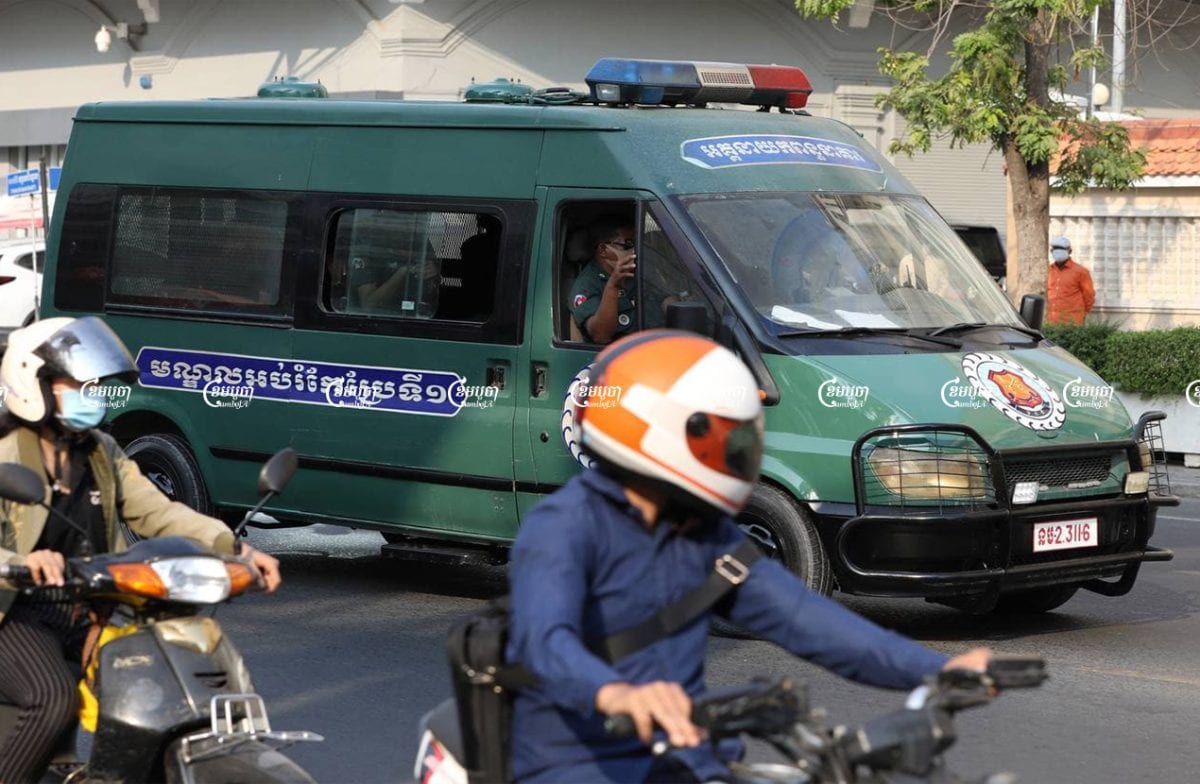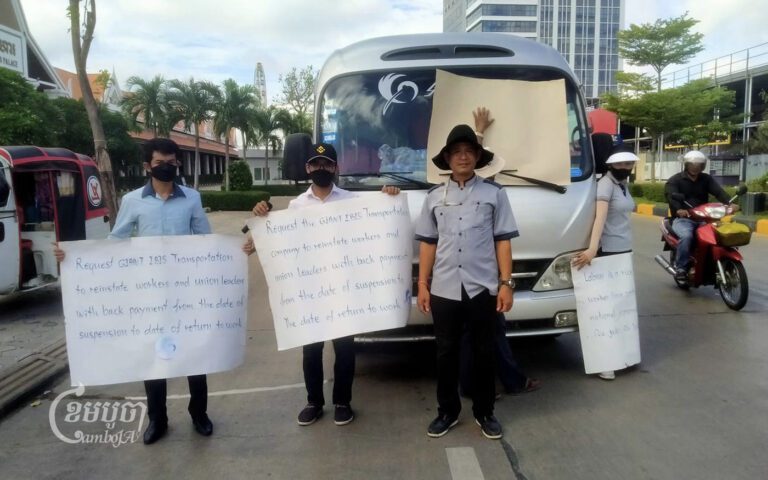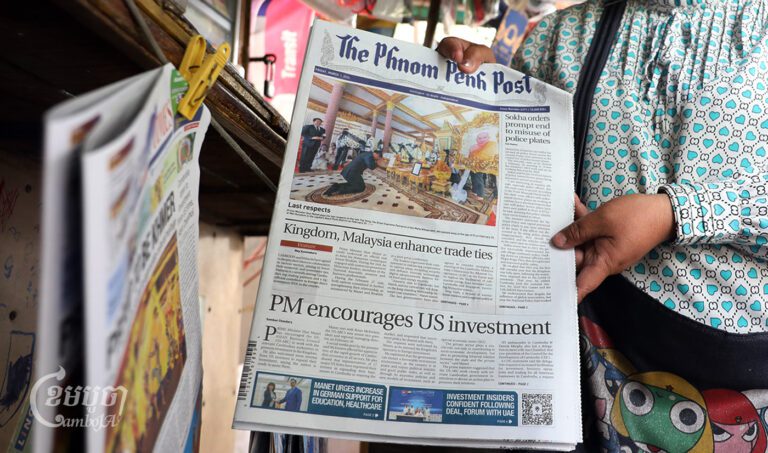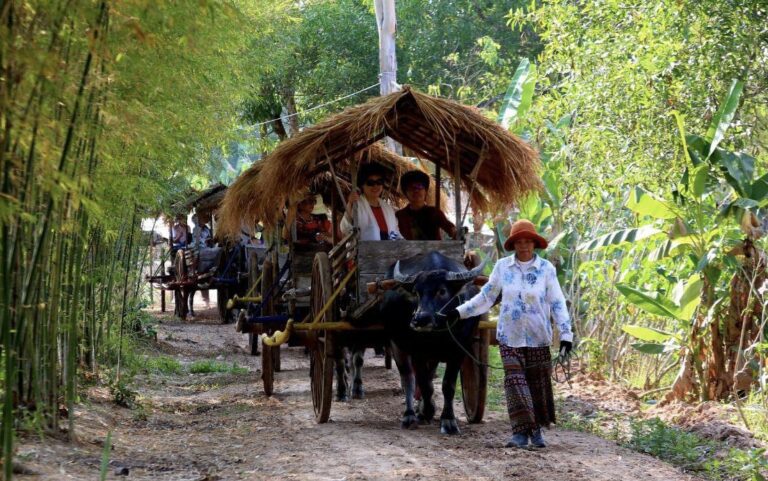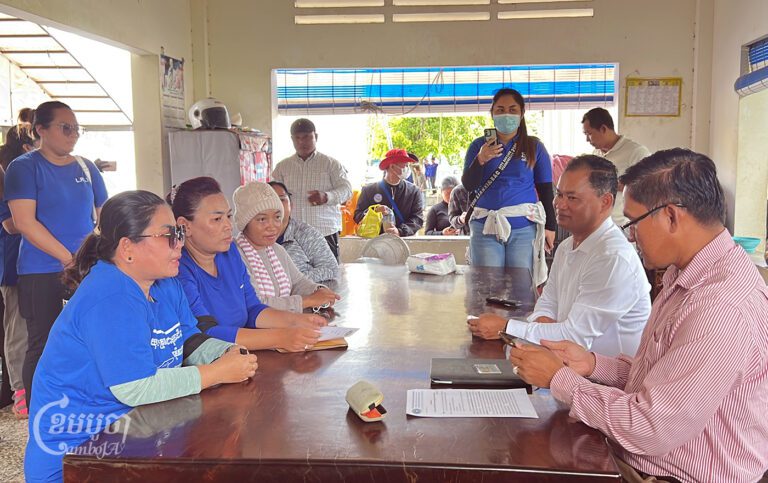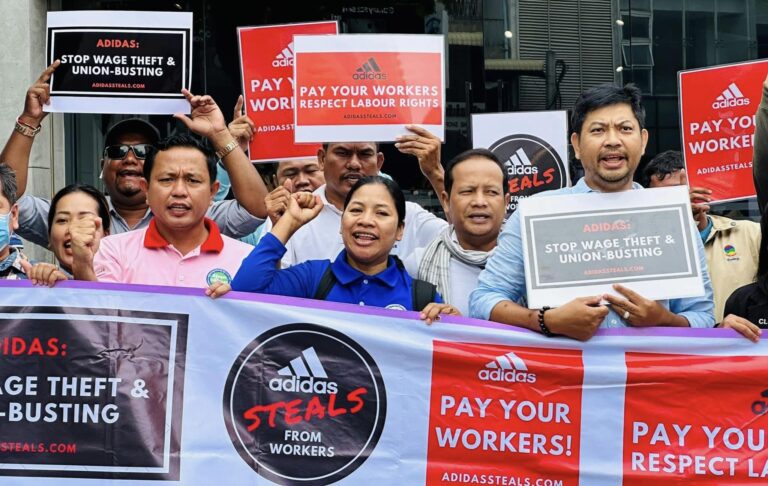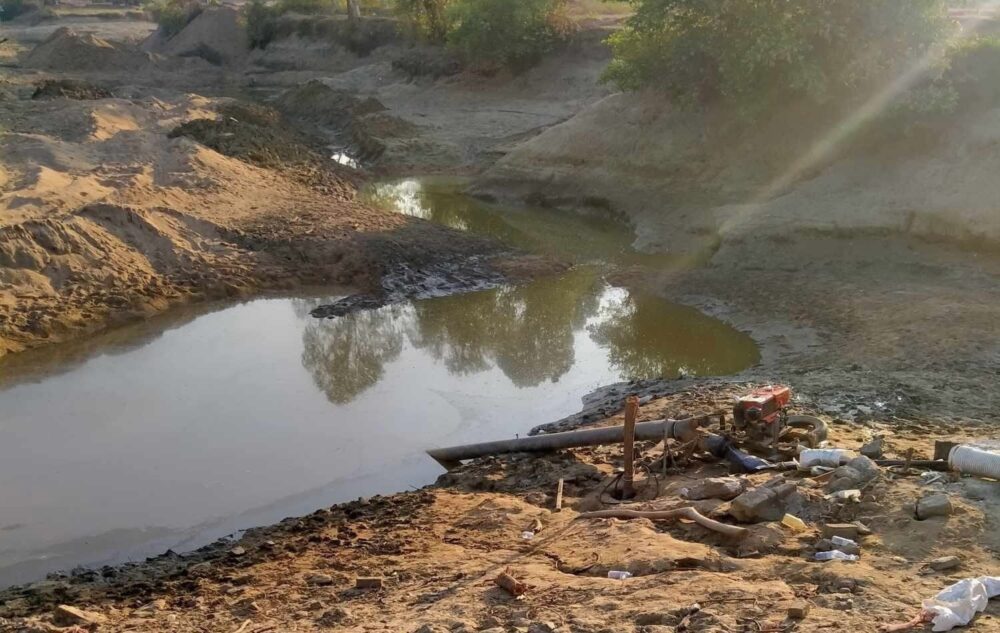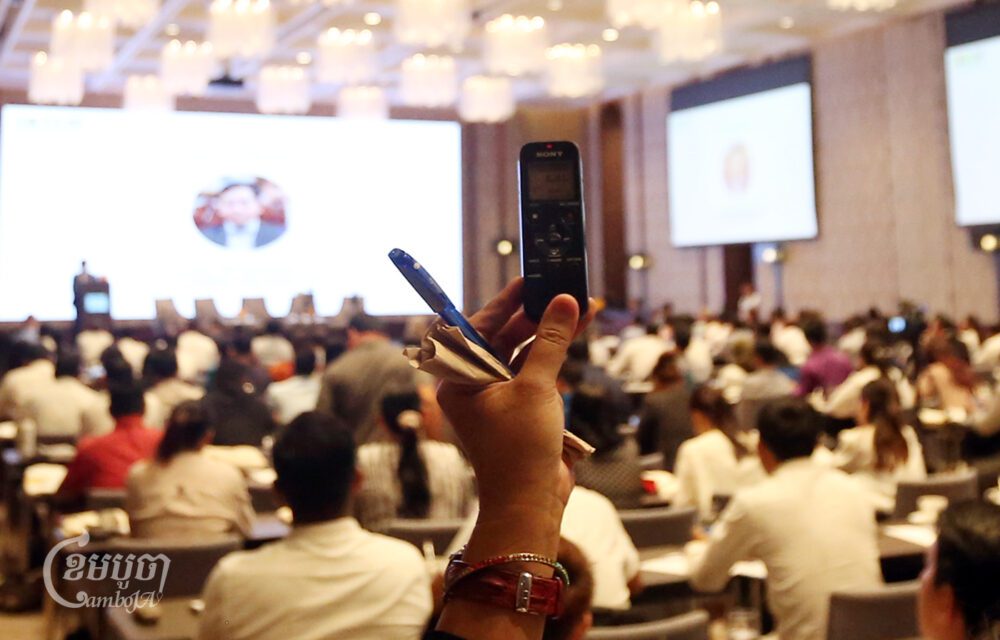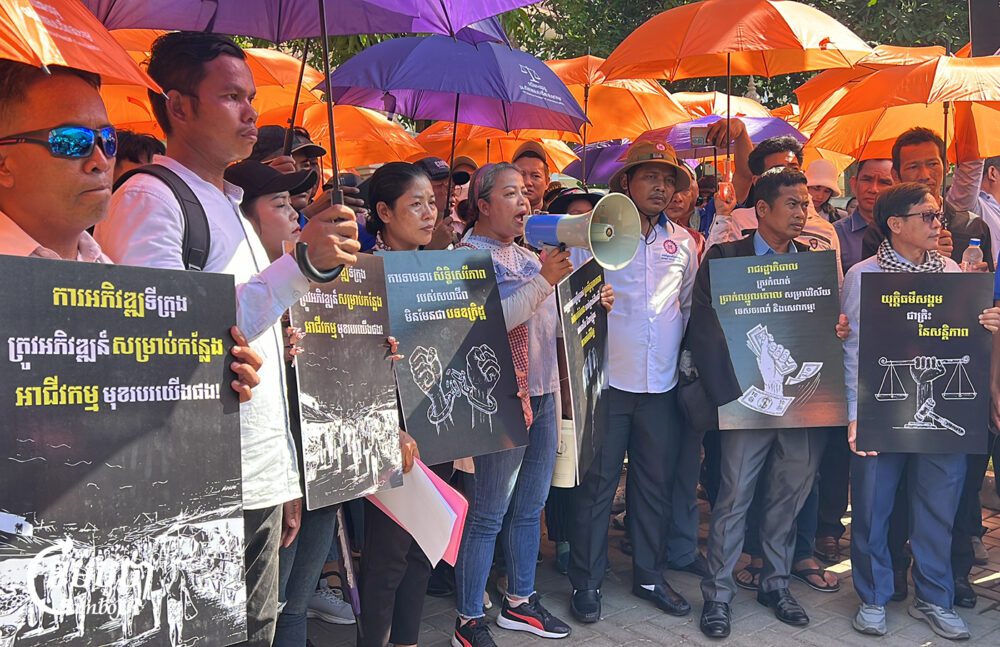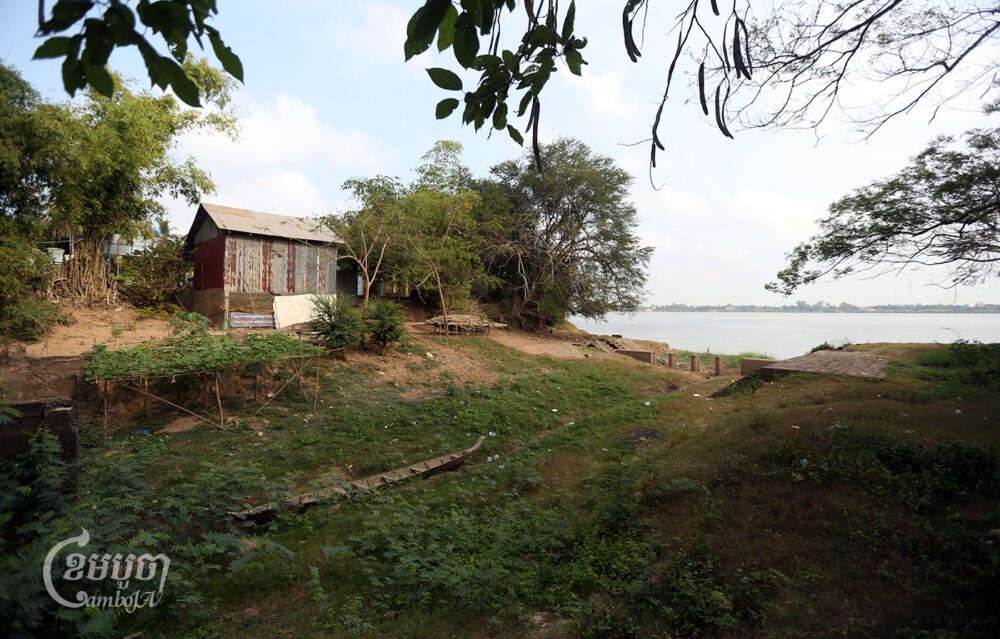As Cambodia moves ahead with its mass inmate vaccination campaign, officials said Friday that 18 inmates have tested positive for COVID-19 at Prey Sar prison’s Correctional Center 1, the largest prison in the nation.
Nuth Savna, spokesman for the General Department of Prisons said prison authorities have quarantined those who tested positive and are tracing their direct and indirect contacts.
“I have not received the figure of direct and indirect contacts yet because officials are busy working on this case,” Savna said, adding that more than 7,000 inmates are detained at CC1. He said officials are also trying to track the original source of the infection.
“If we could not find the source infection it will still continue to spread….so we work hard to find the source [of infection],” said Savna.
On May 8, 34 inmates in Preah Sihanouk provincial prison tested positive for the virus, prompting officials to begin vaccinating all prisoners in the country. Savna said that all but 200 of the 10,400 inmates held in CC1, CC2, and nearby PJ prison have received their first vaccine dose.
At the request of the prisons department, the UN is helping procure and provide rapid COVID tests, according to Savna.
On Thursday, CC1 director Yin Kun sent a letter to the Phnom Penh Municipal Court director requesting a suspension of in-person hearings and questioning, amid the prison outbreak.
“At Correctional Center 1, there were 18 inmates who tested positive for COVID-19. The center has been implementing protection measures against COVID-19 infection… and has been finding direct and indirect contacts to take samples from for testing to find COVID-19,” Kun wrote in the letter.
Chuon Narin, Preah Sihanouk provincial police chief, said no more inmates have tested positive for COVID-19 since the group of 34 tested positive on May 8.
“The situation in the provincial prison is better after the provincial health department and provincial authorities paid attention to those inmates,” said Narin.
He said that nearly all inmates in Preah Sihanouk provincial prison were vaccinated last week, except for those who have COVID-19, or other health conditions that make them ineligible for vaccination.
Narin said that 146 female prisoners, some of them with small children, who were moved to Kampot provincial prison will return only when the Preah Sihanouk prison is deemed fully safe.
Elderly and underaged detainees had been moved to the facility’s emptied detention building for women and more than 100 prisoners who were near the end of their sentences were released early to reduce crowding.
Cambodia’s prisons are notoriously overcrowded, with just two of the nation’s 28 prisons running below capacity, according to data from rights group Licadho. Eighteen of the prisons are severely overcrowded, with occupancy at more than 300 percent. CC1, the country’s largest prison, holds around 7,700 inmates, or 376 percent of its capacity. Late last year, Licadho, Amnesty International, and Human Rights Watch called for better protections for the country’s 40,000 detainees — at least a third of whom are being held in pre-trial detention.
Am Sam Ath, deputy director of Licadho, said the latest outbreak speaks to the dangers of prison overcrowding.
“We are concerned we will see infection happen faster when there were inmates infected [COVID-19] because the [prisons] are crowded and it is not a good atmosphere,” said Sam Ath.
While Sam Ath commended the efforts to test and trace, and provide masks, hand washing, and temperature monitoring, he noted that if prisoners don’t have the ability to socially distance it will be very difficult to prevent the spread of COVID.
“Protection measures are protection measures but when they are so crowded… it is difficult to protect against it,” said Sam Ath.
He said Licadho and other NGOs continue to recommend reducing overcrowding by prioritizing bail release for minor crimes and moving cases through courts more quickly. While pre-trial detention is capped at 6 months, it can be extended twice, with many inmates spending more than a year in prison without ever having been convicted of a crime.
He also urged prison officials to request the court to release those who have nearly finished their terms, and to consider releasing on bail elderly inmates, pregnant inmates, and inmates incarcerated with small children.
If the prisons don’t make efforts to reduce crowding, he said, “there will be a high risk of infection in the prison,” said Sam Ath.
His comments were echoed by the representative of the Office of the High Commissioner for Human Rights in Cambodia, who wrote in an email that the UN called on Cambodia “to consider introducing additional measures to reduce the population deprived of their liberty. This would include prioritizing the release of persons with serious health conditions, persons with low risk profiles, persons with imminent release dates and those detained with offences that are not recognized under international law. This will also include implementing legal and policy measures on alternatives to detention. In the time of pandemic, detention should be a last resort and alternative measures to imprisonment.”
Yin Kun, director of CC1, could not be reached for comment on Friday.
Ngy Mean Heng, director of Phnom Penh Health Department, declined to comment and he referred the question to the Health Ministry spokesperson.
The Health Ministry and Defense Ministry reported on May 20 that more than 2.19 million people across Cambodia have been inoculated so far with their first dose of vaccine. More than 1.39 million people have been fully vaccinated.
On Friday alone, the Ministry of Health reported 460 new cases of COVID-19, bringing the total in Cambodia to 24,157 since the pandemic began in 2020. As of now, the ministry has recorded 16,524 cases recovered and 165 people who have died of the illness.


